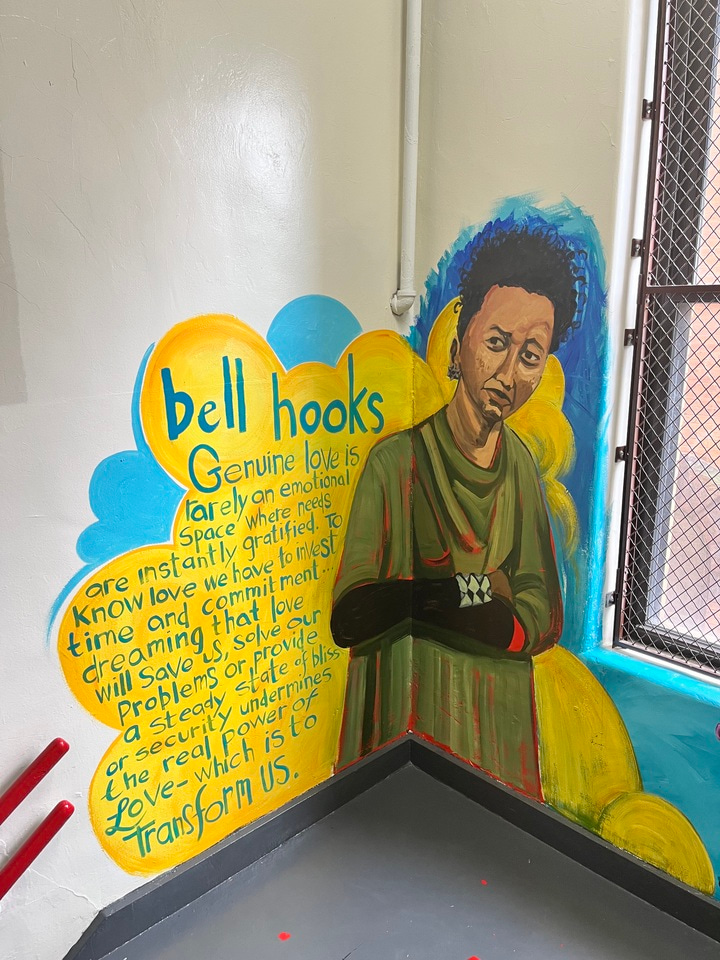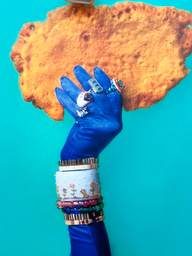LiA Week 1: Back to the Classroom

Week 1
For my second summer, I am partnering with El Puente and creating a workshop series centered around what it means to historize communities. My first interaction with El Puente was with Assenhat, Deputy Director of Programs, through a Zoom call. Her welcoming demeanor and excitement for my project made me feel welcomed before officially starting, arriving at the academy was no different. When I got off the M train at Hewes Street, I was welcomed by the whispers of birds and salutations from construction workers. Walking up Hooper Street tucked between brownstones and a church, El Puente Academy welcomes you with a nebula of colors bouncing from each level as you step through its doors. The teachers and administrators at El Puente have been extremely welcoming and have facilitated a smooth transition into the space.
In my first week with El Puente, I worked to create a curriculum centered on breaking down key themes of liberation, de-colonialism, urban development, and intersectionality as for many it was their first time learning about these initiatives. This workshop series aims to offer a new academic setting for students to engage in open and intersectional learning. The series is sectioned into three weeks because some participants are interested in showing their work as a cohort at the Puerto Rican Day Parade. Given the tight schedule, I have divided the weeks by section: de-colonialism, community, and liberation.
In preparation for the workshops, I met up with the Vice-Principal, Chriss, as well as the outreach coordinator, Jeremy, to ensure this series engaged with topics pertinent to students' lives. On my first day at El Puente Academy, I had a great conversation with Carlos, a history teacher, where we went over the curriculum for 9th graders. As social justice is a pillar of the school's founding, Carlos shared with me how 9th graders are learning about the civil rights movement in conjunction with critical race theory. Being at the school and observing how teachers handle difficult conversations with students, I appreciate how they approach these situations with care and social awareness.
I have worked to maintain this care and awareness throughout the workshops. Being in the school has allowed me to see firsthand the changes in social development for high schoolers post-COVID. At times, students don’t feel motivated to attend class, come to school, or set educational goals. Yet in the classroom, I notice the excitement of students to learn and take charge of their own communities' histories. I feel extremely grateful and honored for the students who have taken part in the series thus far and hope to welcome more students. As a series founded on community care, and artistic and academic expression, I have expanded my work with El Puente and have worked with newly arrived migrant families. This upcoming week, we will be covering what it means to create and maintain a community despite urban development. I plan to show some examples of manifestos to students and invite them to create their own.
Keywords of this week: holistic, mutual aid, and resilience.





Please sign in
If you are a registered user on Laidlaw Scholars Network, please sign in
Hey Aimar! Your work with El Puente sounds so inspiring! I love how you’re diving into important themes like de-colonialism and liberation and making them accessible for the students. The welcoming atmosphere at El Puente and your dedication to fostering open, intersectional learning are truly commendable. Can’t wait to hear more about your workshops and the students’ projects!